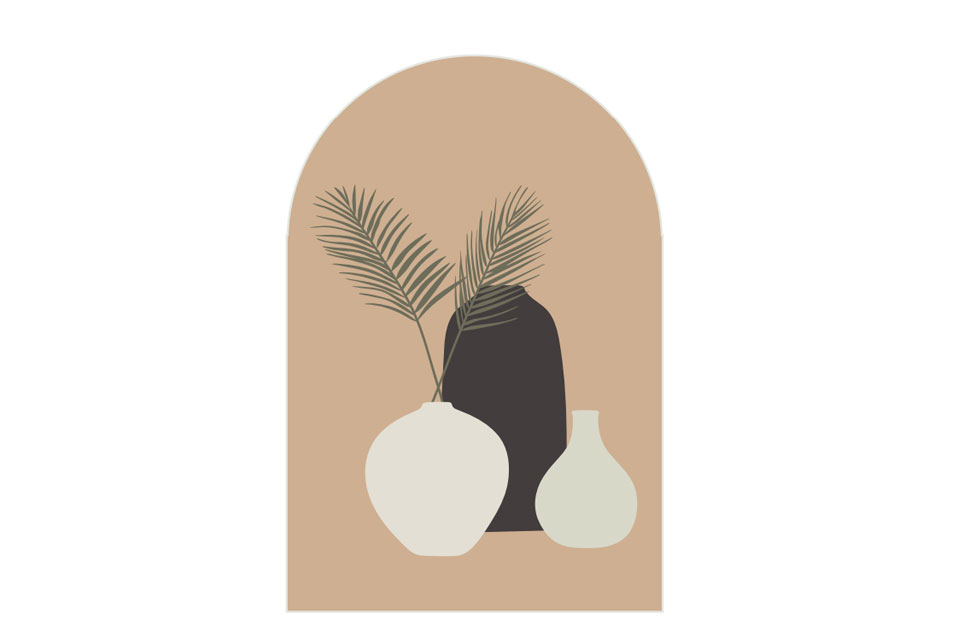Letting go of perfectionism may be the key to a life well lived.
It’s ironic that, as I sit here typing these words, I desire to paint the page with eloquence. I want to find the most articulate and creative way of sharing this message with you. I can feel the memory of “better” writers humming in the background of my consciousness, spiralling me into comparison and begging me to be better. Curiously, though, the thing that makes me happiest is letting go of perfectionism and embracing things — including myself — as they are. This may be a page blemished with perceived imperfections, but it must be good enough, right?
You know that feeling when you look at an old photo of yourself and think, “What was I so worried about? My thighs weren’t big at all!” Or some variation of that? Life is like that in many ways. When you’re in your twenties, you look back on your high-school years and wonder why you worried so much about perfect grades or dating the ideal boy or girl. In your thirties, you remember your twenties and wish you hadn’t stressed so much about your career. In your forties, you think you probably wasted far too much time critiquing your parenting, and so on.
With so much emphasis placed on curating the perfect life — one of material, relational and emotional success — it’s no wonder we’re often left feeling a bit lacking. It’s not good enough to just be good enough: we have to be the best, or at least better.
But how would it feel to let go of our need to be perfect, and instead embrace a gentler approach to life and success? What if the bruises, bumps and blemishes make life more memorable, soft and sweet in its vulnerability? What if a life well lived is good enough?
Perfectionist philosophies
Many great thinkers before us also wanted to unlock the secrets of a good life — one of morality, success and ultimate happiness. Aristotle said we must practise the highest virtue. Kant believed in living and acting from a place of duty. The utilitarians focused on maximising happiness for all beings.

But the philosophers who really speak to me are the ones, like Epicurus, who strive for simplicity. Those who are happiest when surrounded by friends, a decent loaf of bread and a handful of olives, deciding that that is the meaning of life: to be content with delightful, albeit simple things. Or Nietzsche, who said a life well lived is one of creativity and boldness, not being dictated by society or religion, but self-expression. To embrace any part of life, says Nietzsche, requires you to embrace all of it.
Many philosophers, such as Schopenhauer and the Stoics, remind us that life is difficult, its purpose is not to find happiness and we are best to keep our expectations low in order to find inner peace. It sounds a little morbid by modern standards, but there’s comfort in it.
Psychoanalyst Donald Winnicott developed the concept of the “good-enough parent” in the early fifties, promising that no child needs an ideal parent — they simply need a reasonably well-intentioned, good-enough mother or father who will take care of their essential needs and allow them to experience the ups and downs of life. For Donald, our perfectionism as parents is more likely to cause problems for our children than simply allowing ourselves to be human.
The romantics called it “ordinary” and “every day”, and modern philosopher Alain de Botton calls it “the quiet life”.
It’s about looking up at the rainbow of colours you’ve created on your clothes line, indulging in a cup of tea and a good book, delighting in the mundane and finding fascination in the familiar.
These ideals are also expressed in Eastern philosophies. The Buddhists say “life is suffering” and advocate for “the middle way” — not chasing the highs or wallowing in the lows but finding something infinitely beautiful in life’s simple pleasures. In Tantric philosophy, we’re reminded that divinity can be found in everything and that in order to evolve, we must embrace it all!
The Japanese philosophy of wabi-sabi, which can be roughly translated as finding beauty in life’s cracks and creases and taking pleasure in the imperfect, is a beautiful antidote to perfectionism. My good friend and host of the Wabi-Sabi Well podcast, Brieann Boal, says “Imperfectionism is a form of freedom. To be at peace with imperfection is to trust and surrender … The lens through which our culture perceives things is incredibly unforgiving.

We’re spending more and more of our lifetime observing reality through these virtual frames — on Instagram, your computer, tablet or TV screen — and they all seem to say the same thing: perfection is possible, and perfection is power … We’re positioned to think that with a little discipline and effort, we can be free of errors, mistakes, misjudgements and misinterpretations, as well as incapable of having a bad thought, hurting others and ourselves. We’re led to believe there’s a cure for being human, which is ridiculously un-human … We all have flaws.”
Life’s truly perfect moments are the mistake-riddled and silly. Will you spend your last moments in life reflecting on the work presentation that you spent hours perfecting, or the awkward pash you shared with your future partner at the Christmas party? Will you be thinking of how you mopped the floors five times a day when the kids were little just in case a visitor arrived unannounced, or the time they finger painted the walls when you weren’t looking (which, in hindsight, was kind of hilarious)?
Being good enough doesn’t mean giving up. Good enough isn’t bad — it’s just not our society’s picture of perfection. It doesn’t require striving, pushing or abandoning ourselves for some external idea of success. It simply asks us to follow our intuition, do what we feel is right and look for our sense of worth and wisdom within. It feels right, but not because somebody has told us so.
Being good enough isn’t always easy. It takes a lot of effort to leave the floor unvacuumed for a day when you have two shedding pets, or to be present for a toddler and their big emotions instead of rushing to “save” them from their feelings. It’s hard to turn your back on a life of materialism in favour of something simpler. It can be very challenging to say no when the perfectionist in you is desperate for the validation that comes with saying yes. And it can be devastating to follow your own inner knowing and stand alone when the crowd is headed in the opposite direction. But what if you just shrugged your shoulders, smiled and said, “This is good enough”? Because, sometimes, we need to let go of our longing for perfection in order to discover true goodness.
Maybe a good-enough life is even better than a perfect one. It’s more likely to be found in the dappled sunlight of a humble backyard than in front of a computer in a millionaire’s mansion. Because having a patch of grass to park your picnic blanket on may not be perfect, but it sure is good enough.
Jessica Humphries is a writer, yoga teacher and co-founder of Byron Magazine — an online platform that celebrates chilled, mindful living. When she’s not writing or yoga-ing, she’s pottering around the kitchen, spending time with family and friends and living life in the slow lane in New South Wales’ Northern Rivers.
This article was originally found in Being Magazine Issue 10
BEING Magazine is available from WellBeingShop.com.au




